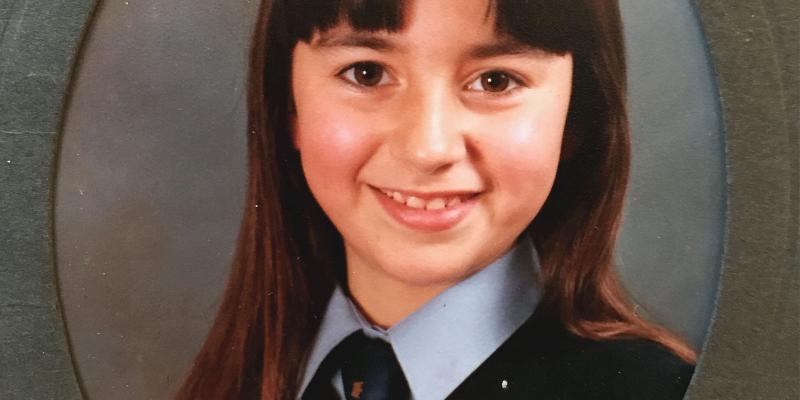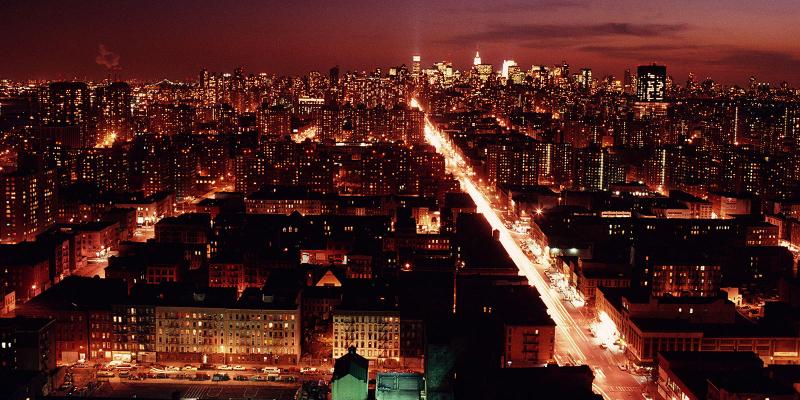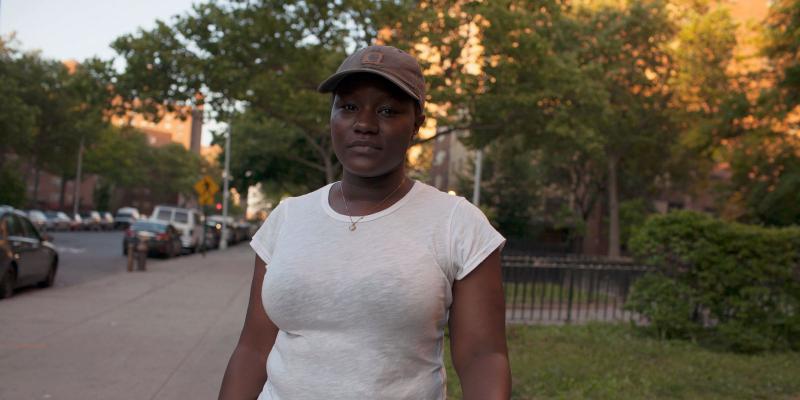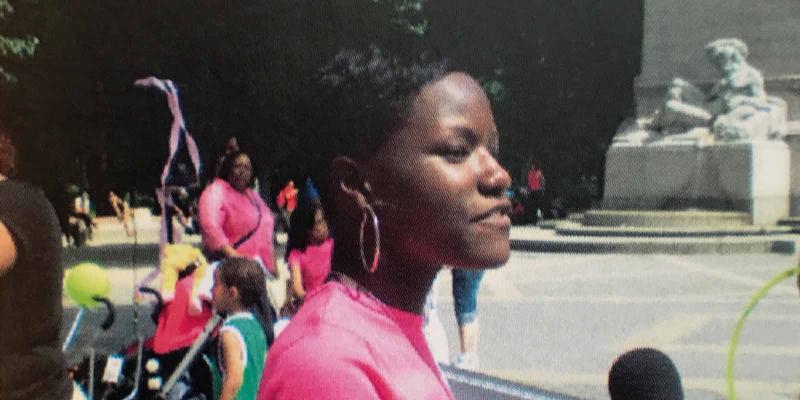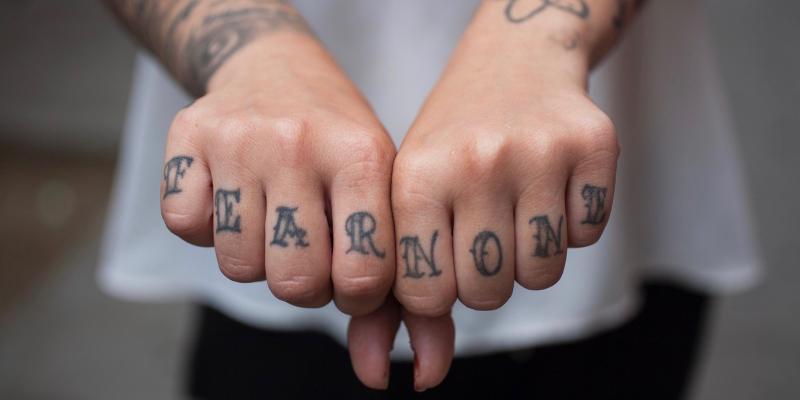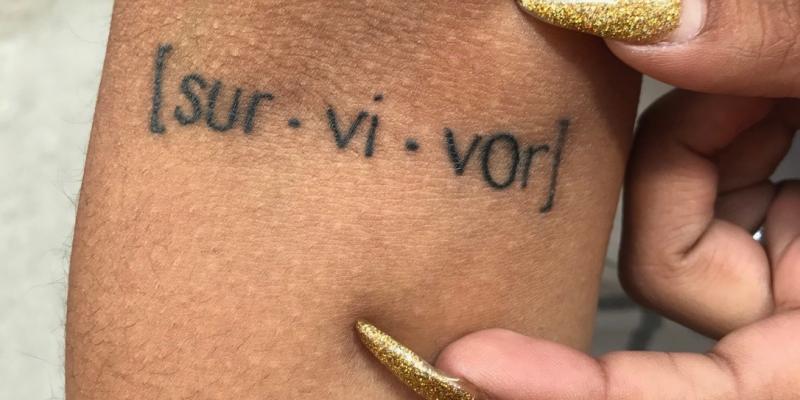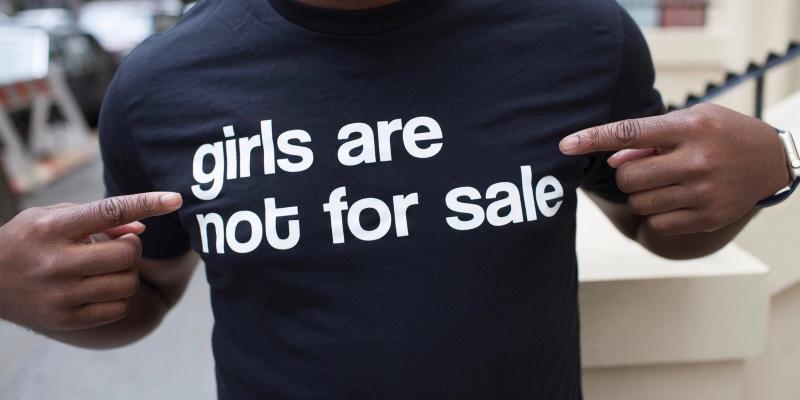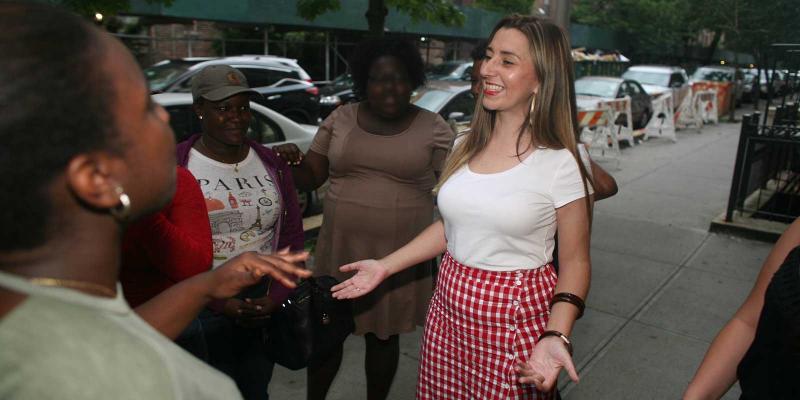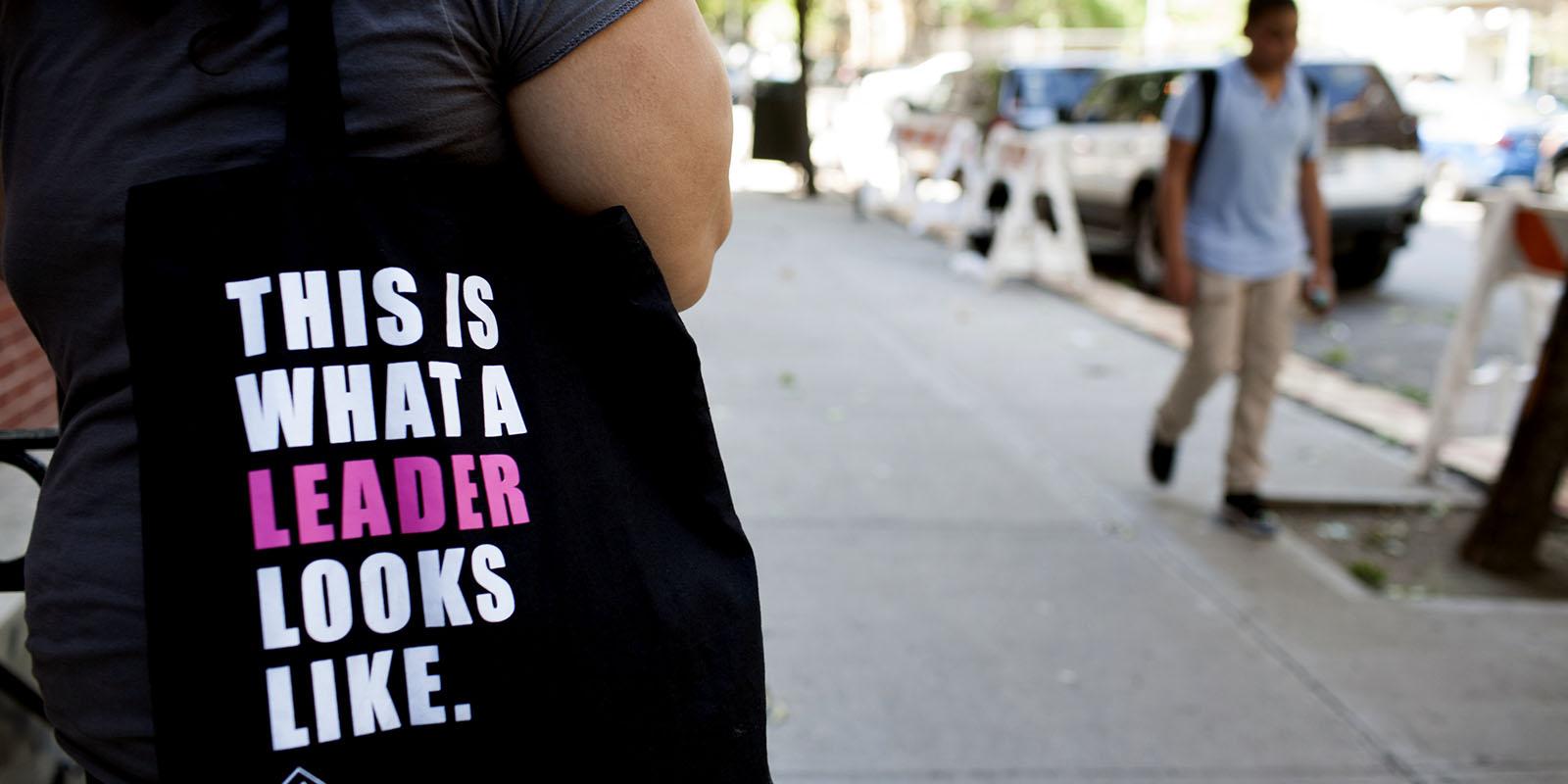
Rachel waits on a bench at the agency where the police take children who are in trouble. She looks around at the cold strip lighting and the pale green walls and doesn’t like what she sees. How can a child who’s been through terrible experiences feel welcome here?
After a few minutes, two staff members arrive with Danielle, a girl in a baggy tracksuit, her hair in a ponytail. She looks angry and sits down with her arms crossed.
Rachel comes from GEMS, an agency in New York that helps girls who have been victims of commercial sexual exploitation and domestic trafficking. She introduces herself and says:
“I’m just here to see how we can support and help you.”
Danielle eyes Rachel warily and remains silent. “I’m not from the cops or child welfare. What you tell me will be confidential. The reason I started GEMS is because I used to be in the life, too, so I wanted to have a place for girls who’d been through the same thing.”
‘In the life’
Most girls get curious when Rachel tells them that she was also caught up in the sex industry, or ‘in the life’ as the girls call it here.
But Danielle is not easy to talk to, so after a while Rachel tries a direct question:
“Can I ask how old you are?” “Eleven.”
“I’m sorry, how old?”
“I’m eleven.”
Rachel is shocked.
She’s met many 12-, 13- and 14-year-olds who’ve been trafficked and used in commercial sexual exploitation of children, but never anyone as young as 11.
Finally, Danielle starts telling Rachel she likes Mexican food and the Harry Potter books. That she wants to be a singer and write poems. And that she has a 29-year-old boyfriend.
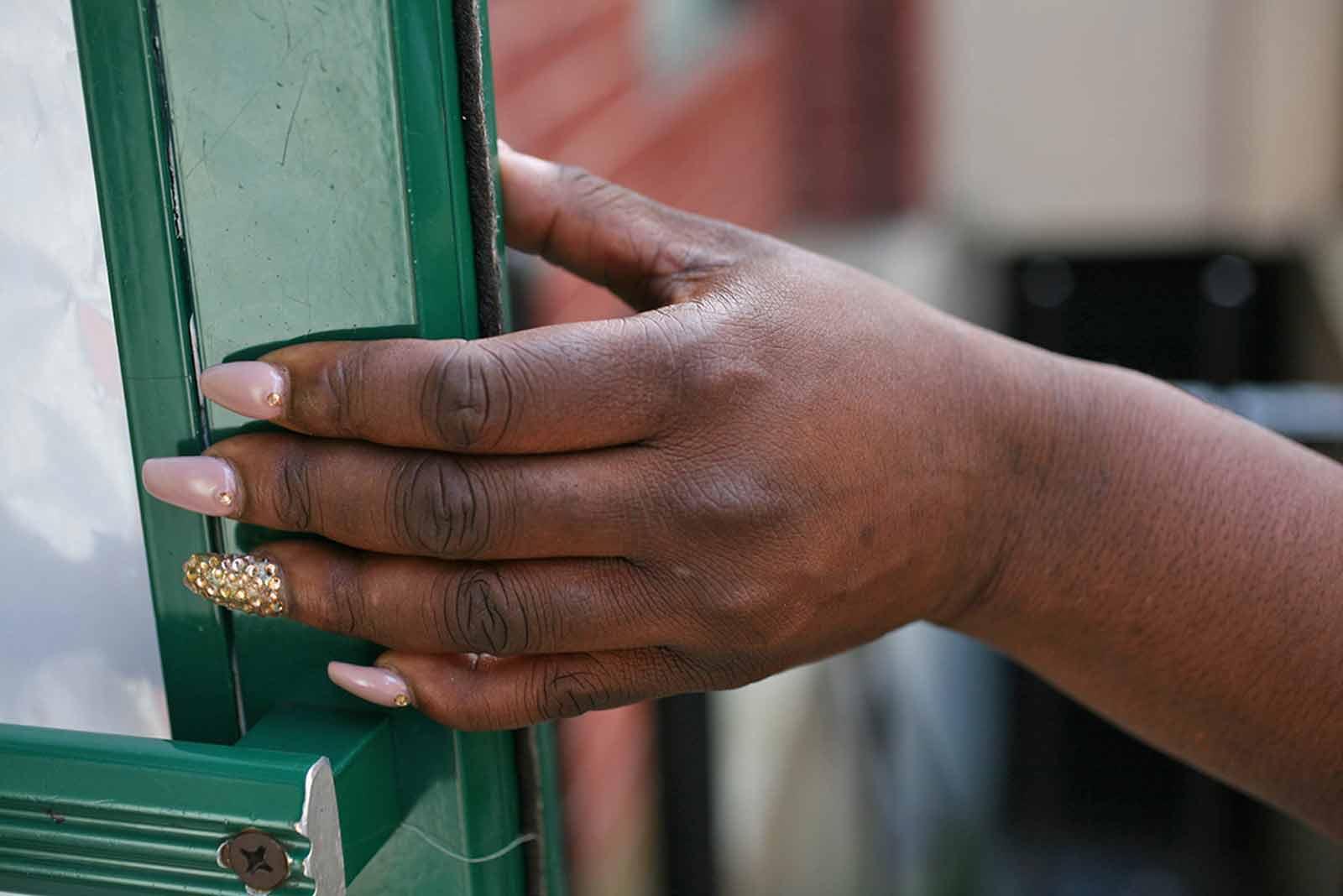
Most of the girls that Rachel fights to protect were forced into commercial sexual exploitation of children when they were just 13–14 years old. GEMS offers girls and young women between the ages of 12–24 a stepping stone to a better life, providing love and practical support.
Boyfriend is a pimp The man Danielle calls her ‘boyfriend’ is really her pimp. The man who is forcing her to sell sex to other men. Rachel mentions a hotel that pimps tend to use, and Danielle nods. She’s been there. “You know how I know that hotel? ... One night, we got a call from a girl ... Her pimp was beating her and she was scared... So me and one of my staff drove down in the middle of the night and ran in and got her out.” Danielle listens wide-eyed. Now she understands that Rachel knows what she’s talking about.
Misses her mom
Danielle says she met the pimp through her sister.“Her and my other sister do the same thing that you and me did,” she whispers.
“How old are your sisters, hon?”
“Elizabeth’s 14 and Annette’s 16.”
“That must be really tough for you, hon. It seems like you’ve had a lot to deal with in your life.”
“I miss my mom,” says Danielle quietly.
Plenty still to do
Rachel finds it hard to get to sleep that night. As soon as she closes her eyes, she sees Danielle’s face.
Rachel and GEMS have helped thousands of girls to a better life, but there are new victims all the time.
But even so, a lot has changed, Rachel reminds herself.
Just a few years ago, Danielle could have been arrested. Now she’s entitled to support. GEMS can help Danielle become a survivor, who can support other girls in the future. And they’ll need her, because there’s still plenty more to do.
Rachel has been fighting for 20 years for girls and young women who have been victims of domestic trafficking in the US. Today, many survivors of abuse become leaders themselves, helping other girls. The photo shows a group of survivors with Rachel and staff members at GEMS.
Children at risk of being trafficed Any child can be caught up in commercial sexual exploitation of children, CSEC, in the US, but the majority are non-white children who have grown up in poverty, in particular:
• Black and Latine children. • Children who have run away from home and/or are experiencing homelessness. • Children who have been taken into care. • Children who have been victims of abuse. • Children who suffer from addiction. • Children who are differently abled (with disabilities). • Children from the LGBTQ community. • Children who've come to the US as refugees or migrants and who do not speak English.
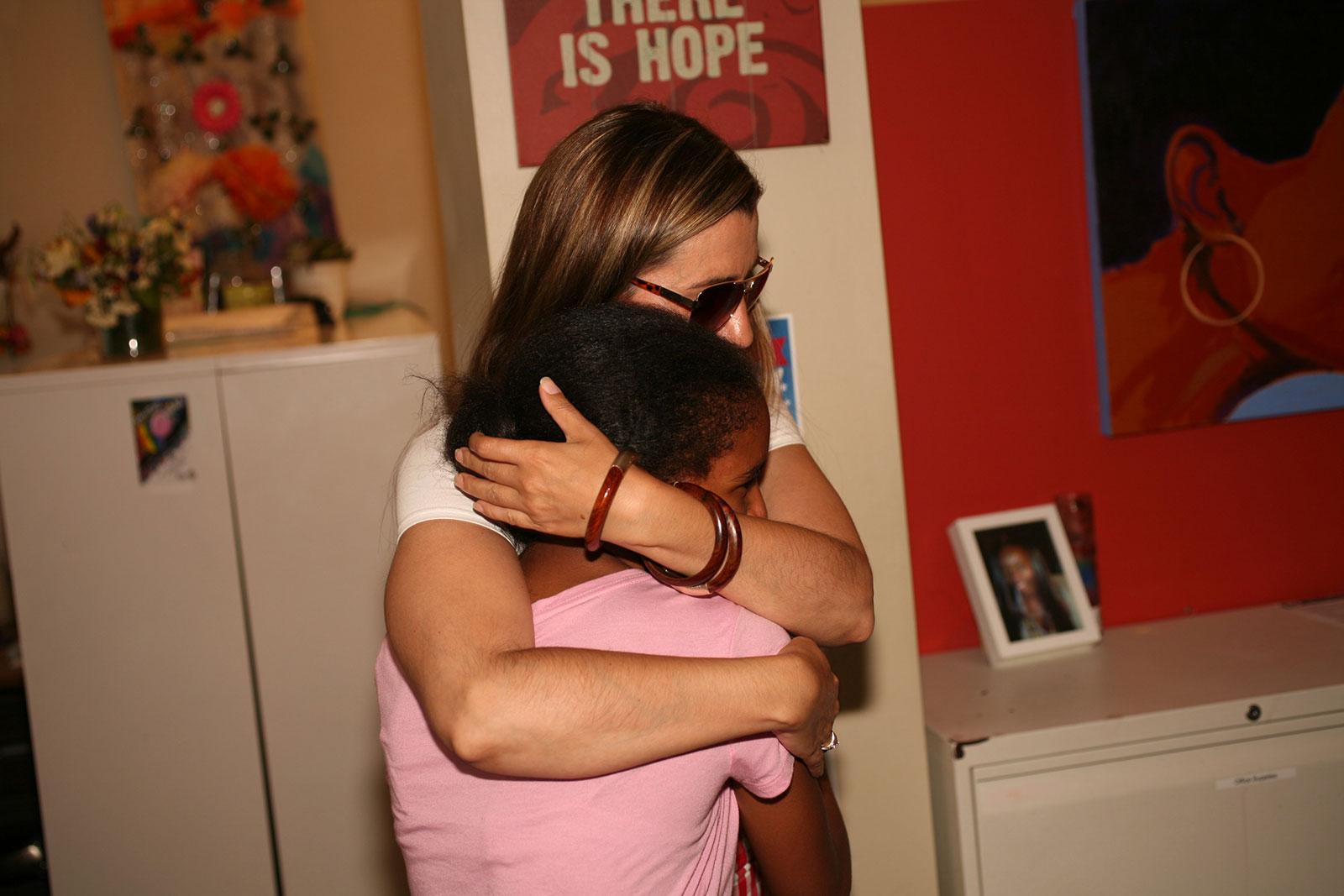
How Rachel & GEMS work Rachel and GEMS asupport girls and young women aged between 12–24, who have survived domestic trafficking and commercial sexual exploitation in the US, through: • Leadership training. • Counseling, workshops, creative activities, sports and health activities like yoga and art therapy. • Help with and advice about education. • Safe housing for vulnerable girls. • Guidance to independent living. • Preventive work. • Legal assistance and alternatives to serving prison time. • Campaigning against commercial sexual exploitation and domestic trafficking, for girls’ rights, justice, child-friendly laws and systems.
Several of the people featured in the stories on these pages about Rachel and GEMS have had their names changed and their ages are not included. This is in order to protect their identities.
Text: Adapted from Rachel Lloyd’s book Girls like us by carmilla Floyd
Text: Carmilla Floyd
Photo: Joseph Rodríguez
Related stories
Långgatan 13, 647 30, Mariefred, Sweden
Phone: +46-159-129 00 • info@worldschildrensprize.org
© 2020 World’s Children’s Prize Foundation. All rights reserved. WORLD'S CHILDREN'S PRIZE®, the Foundation's logo, WORLD'S CHILDREN'S PRIZE FOR THE RIGHTS OF THE CHILD®, WORLD'S CHILDREN'S PARLIAMENT®, WORLD'S CHILDREN'S OMBUDSMAN®, WORLD'S CHILDREN'S PRESS CONFERENCE® and YOU ME EQUAL RIGHTS are service marks of the Foundation.



